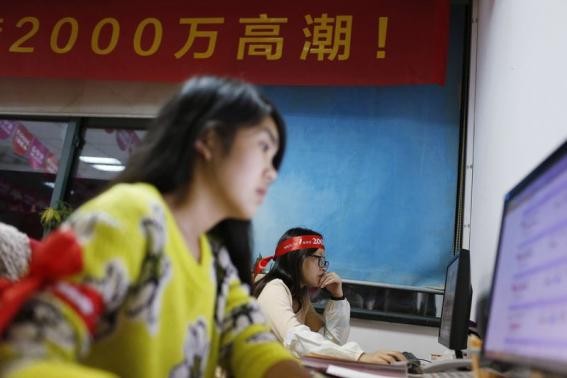The heat in the e-commerce kitchen seems to only be rising for Jack Ma and his giant Alibaba online shopping entity, as the Chinese government's State Administration for Industry and Commerce (SAIC) has followed up on the damning data it released in January with a commitment to tougher enforcement.
The 2015 sample test results, released by the SAIC on Jan. 23, showed that a mere 37.25 percent of surveyed commodities sold on taobao.com, which is owned by Ma's business group, were what the sellers claimed they were.
In light of comparative data that indicated that Taobao's authenticity rate was below the 58.7-percent average of the world's major online shopping platforms, investors across the Pacific, in the U.S., immediately sought legal advice, leading to the filing of lawsuits by numerous firms.
Speaking to reporters alongside the yearly running of China's top political gathering, Zhang Mao, SAIC minister, said that the promotion of "credibility and integrity" is the key responsibility of e-commerce retail platforms.
Zhang also provided further insight into the credibility issue that is plaguing a multi-billion-yuan industry, explaining: "The reason why there are so many market violations is that the cost of breaking rules is too low."
However, while Zhang was adamant that the online marketplace is not lawless and China's authorities will be closely monitoring the conduct of brands like Taobao from now on, he did concede that the SAIC needs to adopt a different kind of mindset in its relationship with the online shopping sector, including the improvement of communication.
Given the identification of this issue, the minister said that his organization will "listen to them [e-commerce companies]" and "provide guidance for them," while also fostering their "self-discipline."



























